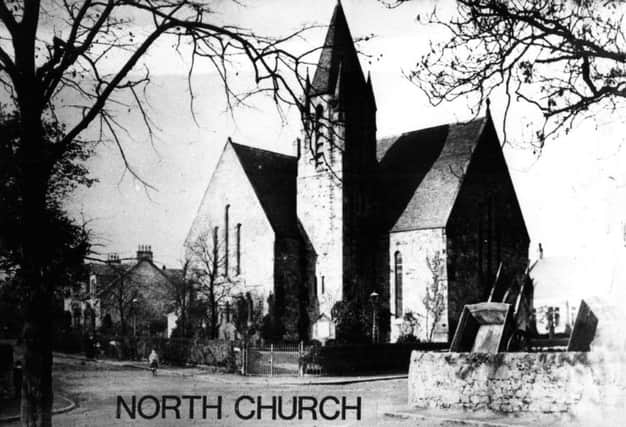Window on the Past


Bearsden was a sleepy little hamlet when this picture was taken in 1900, with the North Church - which was built in 1888-9, dominating the area around Bearsden Cross.
The picture was taken from Roman Road, showing the church house on Thorn Road and corner of Meldrum’s Stables. The building was used by members of the local Free Church of Scotland congregation, who had hitherto held services in the local school. The architect was local man Henry Higgins.
Picture courtesy of edlcimages.co.uk
20 years ago
Advertisement
Hide AdAdvertisement
Hide AdEast Dunbartonshire Council leader Charles Kennedy went to London to plead with the Scottish Office for more cash to stave off a hefty council tax increase.
And after a visit to the House of Commons they had been promised that the Scottish Office would consider £50 per home council tax relief for Bearsden and Milngavie.
Councillor Kennedy and Provost John Dempsey, accompanied by MP Sam Galbraith, met deputy Secretary of State George Kyenock to plead for transitional relief over a three-year period for the district.
Councillors claimed that since grant-aided expenditure had been pegged by the Government at £104m - £8m less than the council’s estimated budget - whopping increases in council tax were inevitable.
Advertisement
Hide AdAdvertisement
Hide AdCouncillor Kennedy explained: “Bearsden and Milngavie having enjoyed the lowest levels of community tax in Strathclyde, the increase will be felt more painfully there than at the Strathkelvin end, which had one of the highest rates of council tax.”
There was a difference of £110 per year in band D council tax between Bearsden and Milngavie and Strathkelvin districts. The new council was seeking a flat rate reduction of £50 to reduce the gap to £60.
Said Councillor Kennedy: “The scheme would most benefit those living in the lower valued houses.”
But local Tories claimed the new council should be able to run the new ship on the allocated budget.
15 years ago
Advertisement
Hide AdAdvertisement
Hide AdAs fears mounted over the spread of foot and mouth disease, the West Highland Way had been closed until further notice.
Rights-of-way which existed across almost every one of Milngavie and Bearsden’s many working farms had made them “high risk.” And while there were no confirmed cases in Scotland at that time two “possible” cases were being investigated in Dumfrieshire.
At Mugdock Country Park the livestock areas were also cordoned off from the public.
David Brewster, of Boclair Farm, reckoned to have one of the UKs top Holstein dairy herds explained: “No one wants to lose animals but when your life’s work has gone into producing cattle that is voted “the best” it’s too devastating to contemplate losing them.
Advertisement
Hide AdAdvertisement
Hide Ad“One of the most popular stretches of the West Highland Way passes through our farmland and it’s with great relief that the closure has been announced.”
Bearsden vet Willie Tucker said: “If someone who had been walking in an infected area of the Borders came up to walk on the West Highland Way it would be fatal.
“The biggest carrier is feet but it can be carried on air as well. The smallest piece of infected material could attack a whole flock or herd.
“Restricting movement is the only way the spread of infection can be avoided.”
10 years ago
Advertisement
Hide AdAdvertisement
Hide AdA master mariner who headed the rescue of a Canadian submarine in the North Atlantic, had been recognised for gallantry.
Charles Mawer, from Milngavie, who was based with the Ministry of Defence in Greenock, was presented with a Gallantry Award for “unparalleled bravery” by the Canadian Navy, for his involvement in the recovery of HMCS Chicoutimi. He also received a commendation from the Royal Navy.
It was on her delivery voyage from Faslane to Halifax in Canada, in October 2004, that the diesel electric submarine, formerly HMS Upholder, caught fire.
The Canadian citation, in recognition of exceptional service to Maritime Command read: “For your outstanding leadership of the salvage party on the casing of HMCS Chicoutimi following a fire and loss of power on board which was instrumental in the swift and safe recovery of the crew and boat. During the recovery, under hazardous conditions, you demonstrated unparalleled determination, courage and commitment.”
Advertisement
Hide AdAdvertisement
Hide AdThe hero himself dismissed the whole exercise as ‘all in a day’s work’ and told the Herald: “While delighted with the award I must stress I was doing my job. However, I would like to say that because the operation involved so many other people who all did an excellent job, I consider the rescue to be the best job I’ve done with the Navy.”